case studies
Salisbury alternative water scheme
Contact
Insight:
Treated stormwater and native groundwater treated to a standard fit for purpose
Project description
Non-drinking water in the City of Salisbury is called ‘Salisbury Water’ and is a mix of treated stormwater and native groundwater that is used to irrigate parks, reserves and schools. It is also used in industry and for toilet/garden use in some new residential developments. Collection, storage and distribution of the water uses constructed wetlands, managed aquifer recharge (MAR) and over 150km of ‘purple pipe’ distribution network across the city.
The drivers
Providing customers with water that provides multiple benefits
- Use alternative water for non-drinking purposes to conserve drinking water, reduce costs and allow irrigation to occur throughout the year.
- Create wetlands to provide flood protection for property, treat water, increase local biodiversity, and provide passive recreational opportunities and open space buffers between industry and residential areas.
- Capture, treat and reuse stormwater to help protect the sensitive downstream marine environments of the Barker Inlet in Gulf St Vincent.
- Provide opportunities for environmental education and research.
- Help the City of Salisbury achieve its broader goal of a sustainable city.
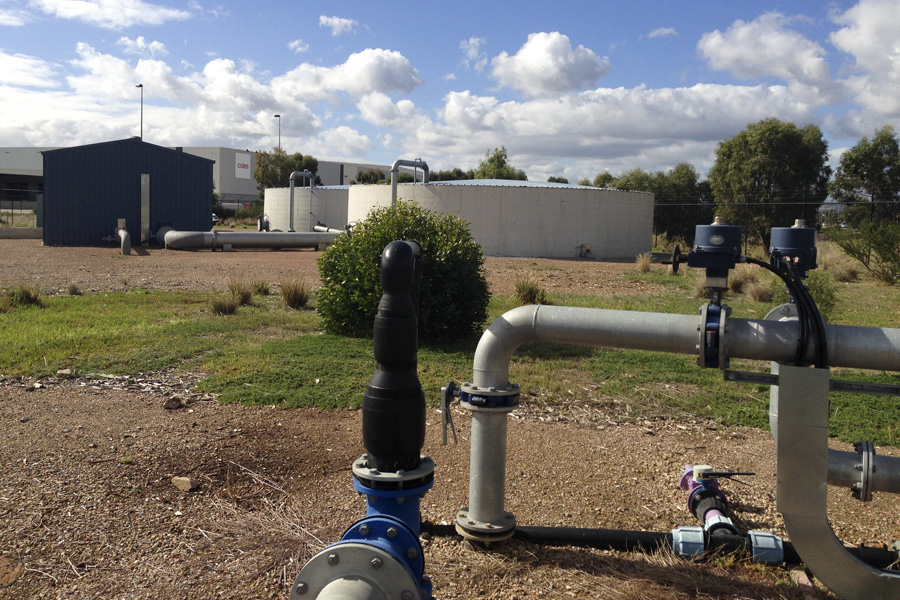
The innovations
City-wide distribution of non-drinking water using constructed wetlands, MAR and a distributed reticulation network
- Wetlands: More than 50 wetlands have been established across the council area as part of the Salisbury Water Scheme. These wetlands capture and treat stormwater before it is stored in underground aquifers for later use.
- Aquifer storage and recovery (ASR): One MAR technique used is for excess treated stormwater (e.g. during winter) to be pumped (injected) down into a natural confined aquifer up to 220m below the ground. The aquifer is also naturally recharged as rainwater filters down through the soil and permeable rocks. Water is stored in the aquifer without evaporation losses and risk of contamination until it is required (e.g. summer months) at which time it is pumped out from the same well used for injection.
- Purple pipe system: The City of Salisbury has nine major MAR hubs and 22 individual community wells, interconnected via 150km of recycled water pipe network. This network carries recycled water to parks, reserves, schools, industry and some new residential developments where the property developer has installed the recycled water infrastructure.
- Fit-for-purpose water: Water is treated to a fit-for-purpose use standard as per the National Stormwater Guidelines. It is suitable for toilet flushing, washing cars, irrigation, industrial/commercial uses and filling ornamental ponds.
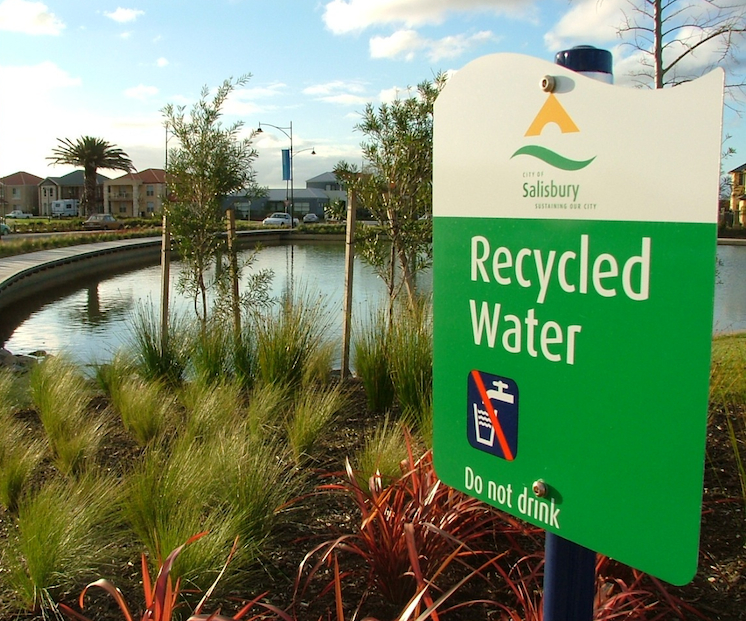
The lessons
- Cheap alternative water can support the local economy: Salisbury Water is provided to its industrial customers at a lower cost than mains water which attracts industry, sustains the local economy and creates jobs for the community. Other new industry opportunities are also continually investigated, including trials for urban farming using recycled water on marginal lands.
- Retrofit of purple pipe into houses is expensive: Salisbury Water is only supplied to new residential houses where the property developers have installed the recycled water infrastructure as part of the development. Retrofitting this pipework into existing houses across the city is expensive.
- An engaged community improves water quality: During its operation, it became apparent that the community had a role to play in improving water quality and decreasing demand for mains water. Educational materials (including public signage) were developed, and community gardens and urban farming R&D projects are supported.
Transferability
The Salisbury Water example has been so successful, it is already being adopted nationally and abroad. This project could be replicated in numerous urban areas with innovative approaches to land use and water storage adapted for the specific location.
Project stats
Location
City of Salisbury, SA, Australia
Participants
Awards
Salisbury Water has won numerous awards, including:
- Stormwater Australia National Awards 2014 - Excellence in Research and Innovation
- Stormwater Industry Association 2012 - National Award for Excellence in Infrastructure
- Institute of Public Works (IPWEA) 2011 - Engineering Excellence Award
- Urban Development Institute of Australia (UDIA) SA 2010 - Environmental Excellence Award
Topics
Additional information
More information on Salisbury Water can be found here:
Contact
The outcomes
 Cities providing ecosystem services
Cities providing ecosystem services

- Creation of new urban ecosystems: Establishment of 50 wetlands to provide stormwater treatment and increase local biodiversity.
- Stormwater quality improvements: Protection of sensitive marine environments from litter, sediment and pollutants carried by stormwater, which is instead harvested and reused as an affordable substitute for the city's mains (drinking) water.
 Cities as water supply catchments
Cities as water supply catchments

- Reduction in mains water demand: Reduction in mains (drinking) water for irrigation and other non-drinking water purposes helps conserve water stores.
 Cities comprising water sensitive communities
Cities comprising water sensitive communities

- Resilient community spaces: Improvement to community public open space amenities through supply of alternative water for irrigation all year round.
- Informed community: Education material developed to build community awareness of Salisbury Water.
Business case
| Costs | Benefits |
|
|
Interested in this solution?
We partner with small and large companies, government and industry in Australia and around the world.
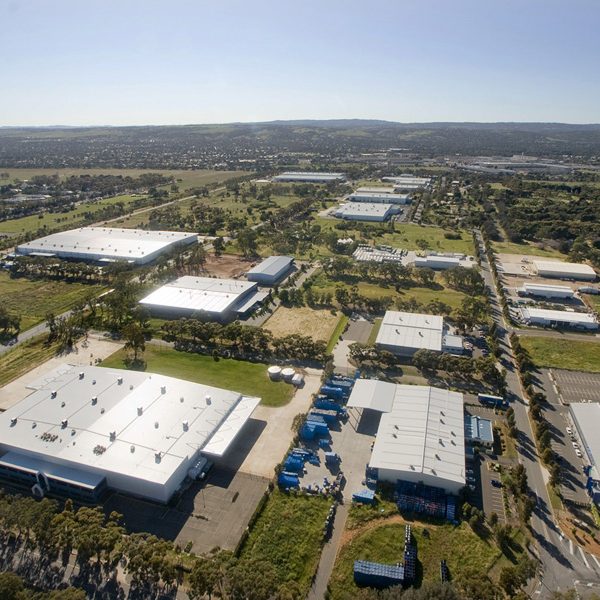
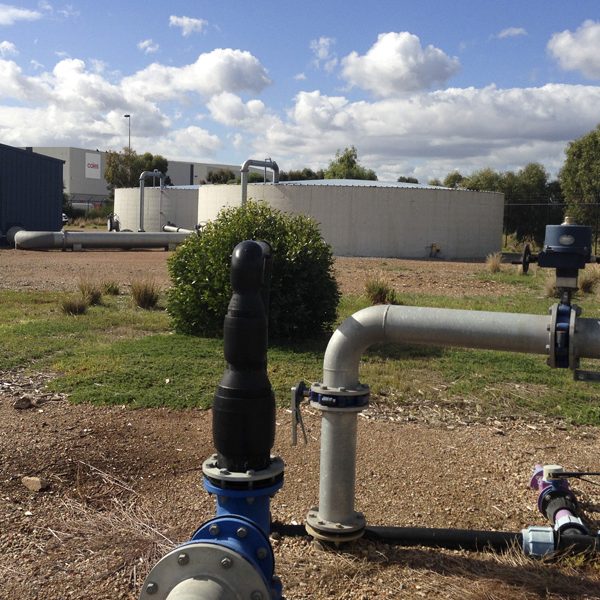
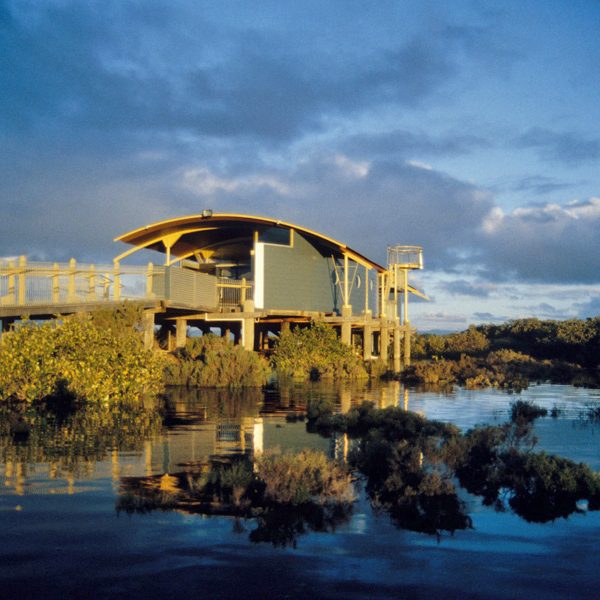
Comments